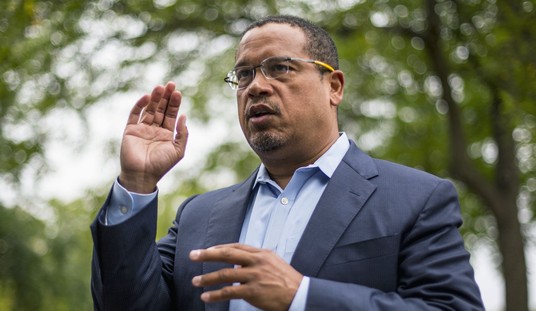For years, a particularly enthusiastic entrepreneur pitched his book that purported to show how Americans could get government cash for free — free except for the cost of his book, anyway. It turns out that getting free cash from Uncle Sam is even easier than he promised. The Commerce Department’s Inspector General did an investigation of the Patent and Trademark Office after receiving whistleblower complaints about waste, and discovered that dozens of employees got paid for years of arduous duty … such as watching TV, surfing the Internet, and doing their laundry.
The best part? Some of them got thousands of dollars in performance bonuses:
Dozens of federal employees at an obscure agency that handles appeals of patent applications went years with so little work to do that they collected salaries — and even bonuses — while they surfed the Internet, did laundry, exercised and watched television, an investigation has found.
The employees, paralegals making $60,000 to $80,000 a year, were idle with full knowledge of their immediate bosses and multiple layers of managers and judges who “sat on their hands” waiting for work to give them, a year-long probe by the Commerce Department inspector general’s office uncovered.
The underworked paralegals did little as a backlog of appeals of patent examinations that many of them were hired to help process doubled from about 12,500 in fiscal 2009 to 25,300 last year. Soon after the appeals board brought on additional legal support staff to address a deluge of challenges to decisions by patent examiners, the Patent and Trademark Office imposed a hiring freeze that halted hires of judges needed to handle the appeals.
But they took home more than $4.3 million in pay and about $700,000 in annual performance bonuses of up to $3,500 apiece for “outstanding” work from 2009 through 2013, the report released Tuesday found.
It’s not as if PTO management was unaware of the issue, either:
Managers were “completely aware” of the problem, according to the report.
Even workers who logged over half their time as Other Time got bonuses of up to $3,500 per year.
Part of the problem was a surge in patent appeals but a lack of judges to generate new work for the paralegals. Sometimes bosses developed “special projects” to give paralegals something to do.
“These efforts, however, were feeble, half-hearted, and ineffective at addressing the problem,” investigators concluded.
“In the worst cases, paralegals seemed content to have extensive idle time while collecting full salaries and benefits, and PTAB management seemed to sit on their hands, anticipating the arrival of judges at some unknown date in the future,” investigators found.
Bear this in mind when considering the efforts for “reform” at the VA, where budgets got increased by 78% over six fiscal cycles, only to see fraud and cover-up get worse rather than better. How many of the jobs funded by those increases amount to “Other Time,” or worse? Throwing more money at a structural problem does not solve the issue, and usually means more waste and fraud rather than less. That was proven true at the VA, and don’t think for a moment that the PTO is alone in the federal government in paying workers without having any work for them to do. In fact, we’ve seen the same thing with the ObamaCare contractor Serco in the last few months, although at least Serco isn’t paying their workers to surf the Internet on taxpayer time — and they’re not paying performance bonuses, either.
As I wrote at The Fiscal Times this week about the GAO report on the incompetent handling of ObamaCare, this is another reason why we should limit government to strictly those functions that can only be accomplished by government:
Auto-renewals of policies were supposed to simplify matters by alleviating the need to re-enroll through the exchanges each year, but it now appears that consumers put themselves at risk either way. “The subsidy scheme created by Congress to keep premiums affordable has so many moving parts that it’s turning out to be difficult for the government to administer,” the AP reported in a line that could have come directly out of F.A. Hayek’s The Road to Serfdom, distilling one of the original conceptual criticisms of the ACA from the beginning.
The GAO report shows a more basic problem with government-run command economies. The massive expansion of bureaucracies needed to handle all of these moving parts, even inadequately, disperses accountability and responsibility so far and wide as to make both evaporate altogether.
We have seen the same happen at the VA, the IRS, and even the State Department in its handling of the Benghazi consulate. There are no other options for diplomacy or tax collection other than a government monopoly, but that’s not true for health insurance to veterans or Americans on the whole.
The VA scandal and this GAO report shows why top-down control should be limited to those functions that strictly relate to governance – and why we should leave everything else to the private sector with government as a disinterested regulator.
The PTO is a constitutionally authorized federal government function, so there is probably no other option than the bureaucracy that’s in place. But perhaps if we trimmed away a large amount of the federal bureaucracy and instituted some real reforms on retention and oversight policies, we might get better performance from those agencies that we cannot disband.







Join the conversation as a VIP Member